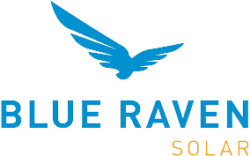Benefits of Solar Energy
Solar energy provides multiple advantages that will enhance your home for years to come.
- Reduced carbon footprint: Embracing solar is a surefire way to reduce your carbon footprint and home fossil fuel dependency.
- Better energy independence: Solar panel systems with battery backups and storage systems work through blackouts and emergencies, and you won't have to depend on the grid for your safety and comfort.
- Lowered energy bills: With solar panels, you produce power without paying the tacked-on costs of grid-tied power. Going off-grid can eliminate your bills completely. Plus, a significant amount of states offer net metering, which permit you to earn money by selling your unused energy back to the grid.
What Solar Incentives Are Available to Portland Homeowners?
The state of Oregon offers numerous solar incentives to help cut your solar system costs. Below is a breakdown of relevant solar programs where you live.
Incentive Type: Rebate Program
Website: energytrust.orgIncentive Amount:
Varies (see below)
Incentive Type: Rebate Program
Website: oregon.govIncentive Amount:
Varies, see below
Incentive Type: Property Tax Incentive
Website: oregon.govIncentive Amount:
100%
Incentive Type: Rebate Program
Website: crpud.netIncentive Amount:
Solar PV: $1,000
Incentive Type: Rebate Program
Website: portlandgeneral.comIncentive Amount:
Heat Pump Instant Discount: $200
Efficient Heat Pumps: $700
Heat Pump Controls: $250
Ductless Heat Pump: $800
Smart Thermostat: $50-$100
Heat Pump Water Heaters: $500 (special pricing available at certain retailers as well)
Incentive Type: Loan Program
Website: oregon.govIncentive Amount:
None
Incentive Type: Rebate Program
Website: insider.energytrust.orgIncentive Amount:
Varies based on performance above code and the particular energy efficient measures installed; can range from $600 to $4,680
Solar ready incentive: up to $200
Incentive Type: Grant Program
Website: energytrust.orgIncentive Amount:
Varies
Incentive Type: Personal Tax Credit
Website: ecowatch.comIncentive Amount:
30% federal tax credit for systems placed in service after 12/31/2021 and before 01/01/2033. Good for: solar water heat, solar photovoltaics, biomass, geothermal heat pumps, wind (small), fuel cells using renewable fuels.
How To Choose the Best Solar Company in Portland
The more informed your provider search is, the better your solar installation will ultimately function. Here are some important factors to remember while searching for a solar provider.
Licensing and Training
Solar companies in Oregon must be licensed and bonded according to the terms of the Oregon Construction Contractors Board. For photovoltaic installations, each standard journeyman on the job will have at least 8,000 hours of hands-on experience and must follow continuing education requirements. Installers of solar thermal systems must be either a plumbing journeyman and a licensed solar heating installer. You should also visit a company's website to learn about its private credentials. Two of the most recognized are the PV Installation Professional and Solar Heating Installer certificates, awarded by the North American Board of Certified Energy Practitioners (NABCEP). Some companies don't publish this information online, so you should also ask your estimator about them.
Cost of Solar Panels in Portland
Your solar modules' type will influence how much energy you can produce. Monocrystalline panels are among the highest quality and cost the most but perform the best. Polycrystalline panels generate less, but they're a great traditional option for low budgets. Thin-film panels are excellent for non-traditional roof shapes and cost the least, but don't work well for large residential installations.
You can also add electric vehicle (EV) chargers and battery backup systems. These will increase your total installation cost, but they can maximize your solar system's efficiency. Not all solar providers include these optional components, so look for a company that sells them if it's important for you.
If you're a resident of Portland and want a five-kilowatt solar energy system, you could plan to spend about $17,500 for materials and labor. Find more information on specific component and solar panel costs in the table.
| Solar Panel Cost | Average Cost |
|---|---|
| Solar Monocrystalline | $1,253 |
| Solar Polycrystalline | $978 |
| Thin-Film | $571 |
| Solar Battery | $802 |
| Solar Home EV Charger | $3,008 |
Financing Solar Energy in Portland
Choosing the optimal financing plan will affect your overall solar system cost and potential savings. Common payment options include cash payments, leases, loans, and power purchase agreements. Though it involves a large up-front payment, cash is the most affordable choice because it doesn't accrue interest and qualifies you for incentives. Solar loans are the second most effective option. As with a home or auto loan, you'll pay a monthly rate towards system ownership, including interest. You can still apply for cost-saving solar incentives, and depending on your lender, you could put as little as $0 down. Solar leases allow you to rent your panels for a set monthly rate, while PPAs let you pay just for the energy you use, much like an electric bill. Both options disqualify you for solar incentives and don't grant you system ownership. Solar experts generally don't recommend them, but they might be suitable in some cases. Look for contractors that offer several payment plans to find the right fit for your pocket.
The table below lists the average payback periods for different capacities of solar systems in Portland.
You can claim a 26% federal solar tax credit from the IRS for new residential solar systems purchased before 2032. Additionally, local governments and utilities may have their own financing plans and rebates that could reduce your total cost even more.
| Solar System Capacity | Estimated Payback period |
|---|---|
| 1 kW | 1.8 years |
| 2 kW | 3.6 years |
| 5 kW | 8.9 years |
| 10 kW | 17.9 years |
Ready to Get a Quote on Your Solar Project?
Please enter a valid 5-digit zip code!
Frequently Asked Questions About Solar in Portland
How much money could I save by going solar in Portland?
How widespread is solar energy in Portland?
Will a solar PV system boost my Portland home value?
Could I still use solar power if I live in a wooded, dark, or rainy area?
How can I check my site's solar feasibility?
What maintenance do my solar panels need, and how frequently do they need it?
What's the difference between a PPA and traditional financing?
You might consider a PPA if you don’t want to be responsible for maintaining your panels and don’t want to invest in a system, but keep in mind you won’t be paying toward ownership or be able to access any cost-saving solar incentives. Many solar experts don’t recommend PPAs. Our guide covers other financing options above.
To share feedback or ask a question about this article, send a note to our Reviews Team at reviewsteam@thisoldhousereviews.com.


















